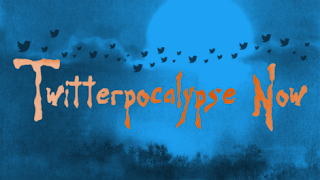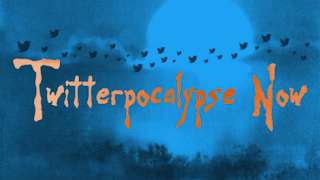Nick Hanover: As weird as this might sound I think Kanye has once again forced a do or die conversation in national politics, albeit in the polar opposite way he did with the Bush moment you mentioned. I don’t think either of us want to get into a discussion about his mental state at all other than to say whatever he is experiencing right now has amplified his historic lack of a filter and that the GOP players who clearly sought to exploit that are realizing too late that they couldn’t control him and he made explicit what they probably intended to just be (louder than usual) dogwhistling. I agree with you that the GOP did not intend for this to be a situation that made them look more moderate, I firmly believe they wanted Kanye to be aggressive and controversial they just didn’t expect him to go full “Hitler is cool, actually” and now it’s causing a lot of groups that are anywhere left of alt-right to not only unify behind shutting down Kanye but also finally recognizing that maybe Twitter does need some kind of governing body.
Right as we began this conversation today, President Biden himself used the platform of Twitter to unequivocally call out everyone who shares Kanye’s Holocaust denying beliefs, and he also seemed to suggest he felt that the platforms that enabled this misinformation were a major problem that may require government intervention. I could be reading too much into Biden’s statement, only time will tell, but even if the government does not step in directly with Twitter, Biden sent a very clear message that he and the party he leads consider the ongoing rise in antisemitism to be a major concern. More cynically, I can’t help but feel that Biden and his team are probably relieved that Kanye and Musk would fuck up so badly right now as the Democrats are facing blowback to their response to the railroad workers’ demands for better treatment.
One of the biggest obstacles for the progressive movement in America has always been the unwillingness of most people to “take a side” or involve themselves in conflict. You see this throughout our history, whether it’s WW2 or the Civil Rights Movement; we just generally avoid getting involved until the situation is either right on our front steps or too disturbing to look away from any longer. And I think in his typical chaotic way, Kanye just forced a lot of Americans to acknowledge that Nazis are definitely back, they are definitely not kidding and they really do believe Hitler had the right idea. And worse than that, the world’s richest man is directly aiding these Nazis and wants Twitter to be their greatest propaganda weapon.
You said you don’t feel that Trump’s actions have caught up with him, so my question back to you is do you mean that in the sense of within the GOP or the culture at large? Do you think this situation with Kanye going full Hitler is going to help or hurt Trump in the long run?
Kim: It’s too early to tell. My own sense of things is that Trump is currently in a better spot than most people seem to think he’s in. He has in some ways reset the outsider/underdog status that served him so well in 2016. Historically, people have underestimated Trump and especially underestimated the degree to which his most racist and horrifying actions and words stir up his rabid base. Key Republicans are obviously starting to distance themselves, and DeSantis has emerged as a plausible rival. But does DeSantis have dragon energy? No. No, I don’t think he does. That is supposedly his advantage! But I’m not so sure.
Outrage remains a very powerful political currency and it doesn’t always unfold in straightforward and predictable ways. So we have this situation where Trump and Twitter and Kanye are on the national news every night. We’re hearing “condemnation from all sides.” But is what we’re seeing the American public finally rejecting fascism once and for all? Or the launch of the most unhinged presidential campaign of our lifetimes? What have Republicans even got without the sheer force of Trump’s terrible personality? Deeply unpopular ideas and beliefs??
I’m sure you are just as tired of bringing everything back to Hitler as I am but it’s hard not to feel like history is repeating here and we’re heading towards a similar situation as the decline of Hindenburg after his final re-election that paved the way for Hitler to seize control. Over and over and over again the Democrat leadership has been generally unwilling to take this nu-fascist party seriously but they have specifically failed at fighting back against Trump’s continued distortion of reality. Even the way Biden condemned the rising antisemitism shows this– rather than directly name Musk or Kanye or even Trump as fueling this hate movement, he vaguely stated what the facts are and even more vaguely suggested someone should probably do something about it. As great as it is to see him condemn antisemitic rhetoric and identify it as a major problem, this response is still the definition of too little too late and I truly believe we’re heading towards a new version of the Reichstag Fire where the Democrats help the GOP pin the blame on the Democrats themselves.
There is no way out of this mess without shutting down or seizing control of the propaganda vehicles these nu-fascists are using, and that includes Twitter. But how do you even do that now without playing right into the “deep state” conspiracy these terrorists continuously yell about? Similarly, sending Trump to prison now rather than right after January 6th is only going to embolden that movement. Our “lesser evil” party has failed in every possible sense.
I’m also extremely concerned about how quickly and loudly Musk is using Twitter as a means to get around the donation and advertising restrictions that are in place for elections. On his Substack, Matt Taibbi revealed just how much involvement Musk had in shaping that story, making it abundantly clear that Taibbi is a full blown political operative now instead of anything resembling a journalist. Taibbi has already promised more “episodes” of the “Twitter Files,” but with Musk gloating about how he views his acquisition of Twitter as a license to dredge up whatever private correspondence serves as ammunition for his political aims, we are undoubtedly going to see the most chaotic and disruptive political contest of our lifetimes and possibly of the entire American lifetime. What do you predict will be next? Who else do you think is going to reveal themselves to be a Musk crony? How long before Matty Y gets his own “Twitter Files”?
So that brings us full circle, back to our original questions about where we even are with the Twitterpocalypse. Namely, when is Twitter gonna die? And how? The existential threat seems to have been all but forgotten on the timeline, but the company is plainly still in serious financial distress. The service is spotty, but working better than I expected. And as of Saturday night (when I’m writing this response) (…because I’m cool), Musk claims that advertisers are coming back. While his posturing may contain a seed of truth, reports say that Twitter’s revenue is nowhere near normal. So what do you think, is the Twitterpocalpyse still on track? Or do we need to reconsider?
Nick: I think the Twitterpocalypse is definitely still on track because the platform continues to hemorrhage active users and is boosting the activity of other platforms in the process, even massively uncool platforms like LinkedIn. On top of that, there are the ongoing security and public safety concerns, which are now amplified since Musk publicly admitted to sifting through private correspondence for ammunition. If 2024 doesn’t go the way Trump and Musk want, I think Musk has placed a giant crosshair on himself, too, and if Twitter isn’t a rotting corpse by then he will almost certainly carve it up as much as he can to save himself. I don’t exactly trust his claims about the return of advertisers, either; even if Apple has come back the odds that they are still putting as much money into the platform as before are next to nil. If Twitter was actually doing well and entities like Apple were not as much of a concern, I don’t think Musk would be spending as much time as he has been promising everything is just fine.
Kim: Maybe Dave Chapelle will do a special! Men’s rights terf comedy is probably Twitter’s most viable path to solvency at this point.
Well, I think that about sums up where we are in the Twitterpocalypse. To quote Ye, “It ain’t funny anymore.” Thanks for reading, and if you haven’t left Twitter yet, you can follow Nick Hanover @nick_hanover and Kim O’Connor at @shallowbrigade.



